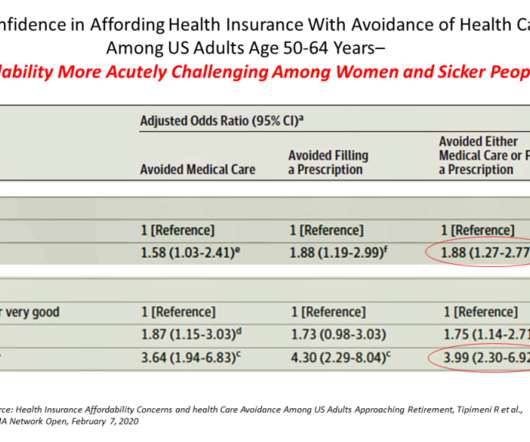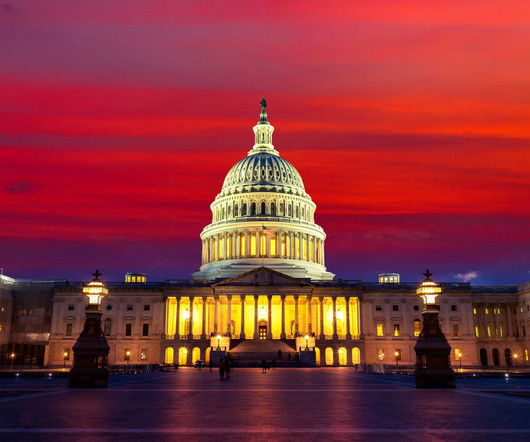Health Care Costs Concern Americans Approaching Retirement – Especially Women and Sicker People
Health Populi
FEBRUARY 10, 2020
Even with the prospect of enrolling in Medicare sooner in a year or two or three, Americans approaching retirement are growing concerned about health care costs, according to a study in JAMA Network Open. One-half said they weren’t confident in their ability to afford health insurance in or near retirement.











Let's personalize your content